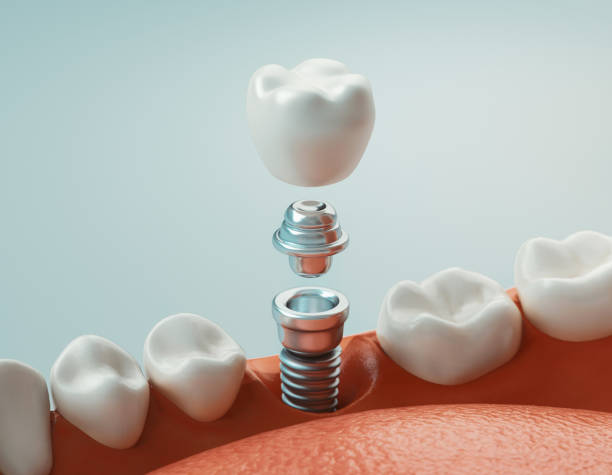What You Need to Know About Getting Dental Implants

The procedure can be performed to replace a single tooth, several teeth, or even the entire set of teeth. The number of implants depends on the number of missing teeth, and the condition of the jaw bone. If the jaw is lacking enough bone, the dentist may decide to perform bone grafting before placing implants. While placing an implant is easier than removing a tooth, patients should expect some discomfort during the procedure and for the first week following the procedure.
Dental Implants are a great solution for missing teeth. Unlike traditional dentures, dental implants fuse with the jawbone. Once they have bonded to the jawbone, they are then fitted with a custom-made crown. This crown is designed to match the surrounding teeth and blend in perfectly with them. Patients can return to their regular dentist for regular checkups to ensure that their dental implants are functioning correctly.
Although there are risks associated with dental implants, they are extremely successful in the majority of cases and can last for decades with proper care. While implants do require some aftercare, they are usually biocompatible and require only minimal care. Patients must practice good oral hygiene and visit the dentist regularly to monitor their dental implants. By keeping up with regular dental visits, patients can ensure the health of their implants and avoid harmful bacteria that can destroy them.
Dental implants can replace a single tooth, several adjacent teeth, or an entire jaw. They can also support a removable or fixed denture. The number of implants needed depends on the final restoration and the amount of bone available. Typically, dental implants are made of titanium, which is biocompatible and provides strength and durability. This material also has a property called osseointegration.
Dental implants can be of two different types: mini-implants and single-stage implants. During single-stage dental implants, the implant is placed between the roots of your teeth and gum tissue. The healing cap is then closed, allowing for a temporary restoration to be attached without undergoing minor surgery to expose the implant head. Alternatively, subperiosteal implants are placed within the gum tissue, exposing the metal implant post. These implants were originally used to keep dentures in place in patients with inadequate bone height.
The process of dental implant surgery is customized for each patient. The process usually takes several months, and involves multiple dental visits. Sedation is also required for some procedures. The cost of dental implants depends on several factors, including the type of implant, the number of teeth that need to be replaced, and whether or not you have underlying dental issues. If you are concerned about the cost, you should speak to your prosthodontist before going ahead.